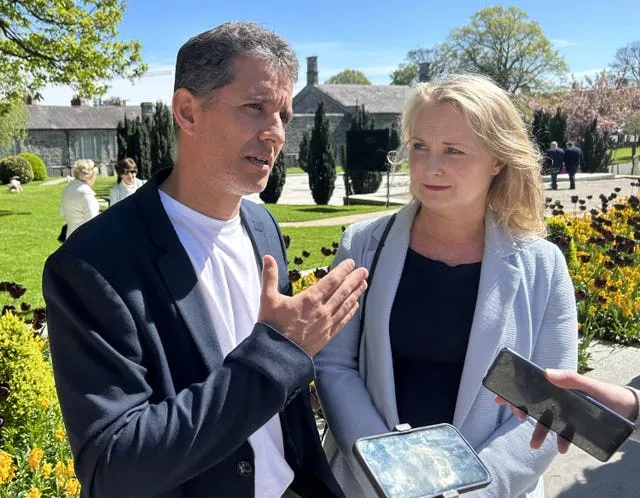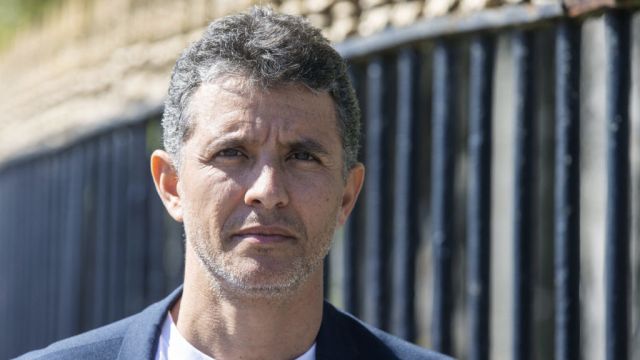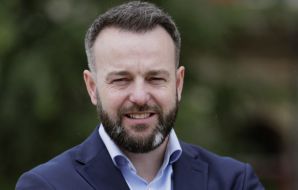Along a road lined with red-brick houses in Dublin’s inner city, Caio Benicio is asking people to elect him as their local councillor.
Six months ago, Mr Benicio made headlines after intervening in the Parnell Square East attack in Dublin, in which a five-year-old girl, two other children and their carer were hospitalised.
After flying home to visit his family, he returned to Ireland and announced he had joined Fianna Fáil and would be looking to represent Dubliners as a councillor for the North Inner City constituency.
While on a canvass with Mr Benicio and Tánaiste Micheál Martin in Stoneybatter one evening ahead of the local elections on June 7th, he says that in Brazil, people do not canvass from door to door.

“Yes I like it – learn about the issues, come up with a solution, bring them back,” he says.
As Fianna Fáil senator Mary Fitzpatrick charges from door to door, pausing briefly after knocking before moving deftly on to the next household, she asks those who open their doors to give Mr Benicio an ear.
“Hear him out, he’s a first time candidate,” she says, and adds: “You may also recognise him as the guy who intervened in the Parnell Square attack.”
Voters praise Mr Benicio for his “incredible feat of courage”, and he tells them that he wants to do something meaningful and bring more energy to Dublin City Council.
Voters raise housing, the cost of rents and retrofitting their homes, access to healthcare and transport issues with the media and canvassers.
One woman asks that the refuse system in Stoneybatter area be “simplified” and for the brown bins they use to be half the size so they are easier to clean.
Ms Fitzpatrick interjects to say “he certainly simplified matters on Parnell Square”.
As they wrap up, the resident says she will vote for Mr Benicio because, “I think you will do something”.
When Tánaiste and Fianna Fáil leader Micheál Martin arrives on the canvas there is a flurry of activity: residents look taken aback when his head pops into view; some Labour canvassers ask him for selfies; a group of girls who are members of the under-11s Bohemians football group giggle as they pose for photos with him.
Mr Martin says that people have been “pleasant” and “courteous” on canvasses across the country, but adds: “That doesn’t mean they will all vote for you.”
The Stoneybatter-Arbour Hill area is home to a mix of local Dubliners and young homeowners. Palestine flags hang from several windows, an “End Direct Provision” sign is propped up another window.
Among the various issues residents raise are concerns about the number of far-right candidates on the ballot papers.
“Nobody raised the immigration issue around here except to say they want to see the far-right challenged,” says Fianna Fáil’s MEP candidate for Dublin, Barry Andrews.
“They want to express on the doors their appreciation for new communities in Ireland, the importance of immigration.”
Some do not raise issues at all, they are so taken aback by “the whole crew” on their doorstep, as one woman put it, but they do have concerns.
A homeowner in Stoneybatter, who said her car had been broken into twice, said she is considering emigrating to another European country.
“Housing is a disaster, obviously” she says and although she was “lucky” to be able to afford a home, she now can’t afford to do work to it.
“It’s really cold in the winter time, but I don’t have any money – after working my ass off to get (a house), on my own, no one gave me money for it. It’s hard.
“Traffic is another thing, getting anywhere takes over an hour.”
Another homeowner in Stoneybatter raised transport and the need for a better bus system, as well as the need for “more accessible” grants to retrofit homes.
Another person said that housing was the “fundamental issue” and that “better communication” was needed from the Government on migration, while another man wanted more funding for the League of Ireland.
“Well done on the Gaza stuff,” one woman says to Mr Martin, referencing the announcement to recognise Palestinian statehood.
After Ms Fitzpatrick appears behind Mr Martin, who was speaking to a resident alongside Mr Benicio and Mr Andrews, she states: “If you want to say thank you, vote for the lads on June 7.”
As Mr Martin knocks on the next door, he gestures to the team to be “calm”.
When asked what his canvassing advice is, Mr Martin says: “Listen. I just noticed something – they tend to plough straight in and say, ‘I’m canvassing for …’ I rarely do that.
“When a door opens you’ve got to try and make sure the door stays open for a bit so a conversation can develop and I think above all try and hear what the person has to say.
“Listening is the greatest skill … We have to keep working on being good listeners.”
He says that Mr Benicio’s campaign efforts are part of a new, modern Ireland. He says: “57,000 Brazilians in Ireland today and – no more than the Irish in London or parts of the UK – it’s inevitable that the communities such as the Brazilian community would seek representation on our local councils. I think that’s a good thing.”







